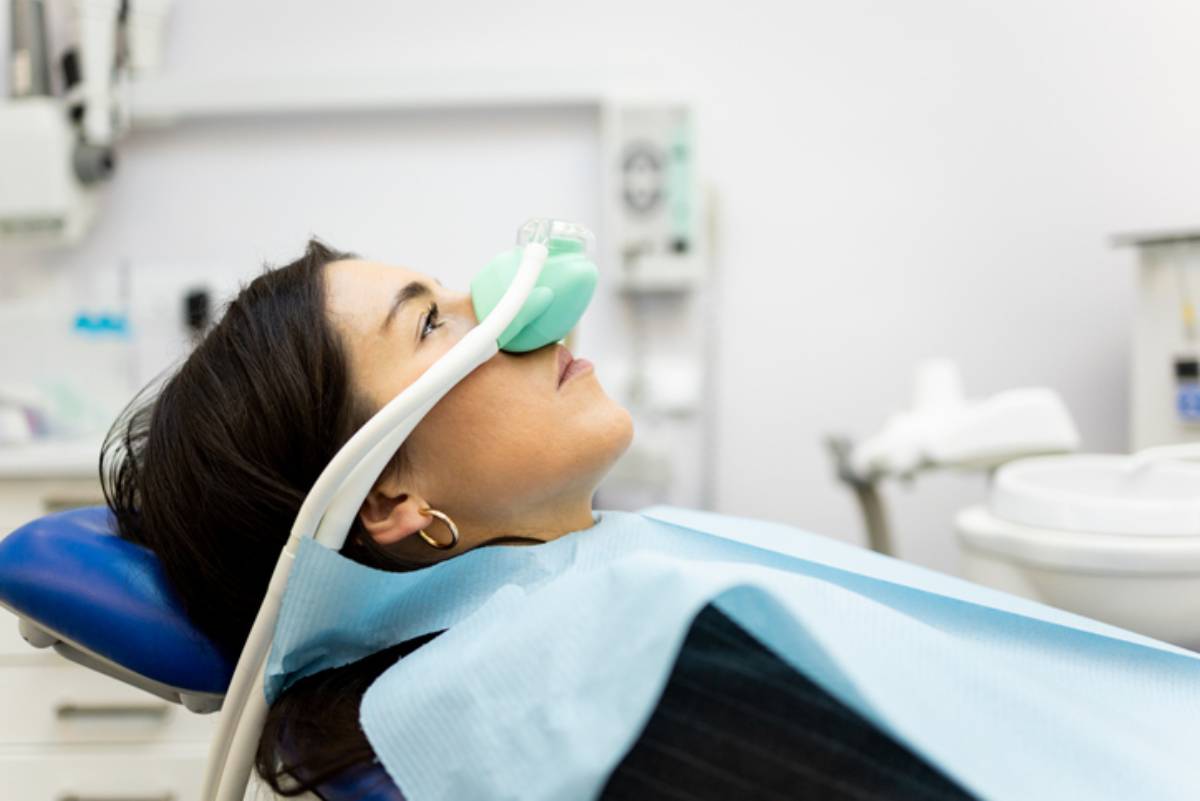Your dental appointment is growing ever nearer, and your dental anxiety is almost at its peak. You’re already in a desperate search for a reason to cancel. Millions of people suffer from dental anxiety, and it is keeping them from getting the treatment and care they need. This is nothing new to your dentist. They see it daily, which is why sedation dentistry was created. But, how does sedation dentistry help with dental anxiety?
For some, dental anxiety is paralyzing. Small triggers, like the smell of the office or the sound of a drill, can trigger a panic attack. This may seem disproportionate to the situation, but your brain doesn’t register it when fight-or-flight mode takes over. Sedation dentistry is a safe and effective way for even the most anxious to get proper dental care.
What Is Sedation Dentistry?
Sedation dentistry isn’t as complicated as it may sound; it refers to medications that help ease anxiety during dental procedures. You aren’t put to sleep; you are still able to respond to questions. You will feel relaxed and won’t notice any pain. Some refer to sedation dentistry as conscious sedation or twilight sleep.
Who Should Consider Sedation Dentistry?
You may benefit from sedation dentistry if you have:
- Fear of dental treatment
- Fear of needles
- Sensitive gag reflex
- Sensitive teeth
- Claustrophobia
- Difficulty controlling muscle movement
- Suffer from physical, behavioral, or cognitive needs that cause it to be difficult for you to relax
Types of Sedation
There are several options for sedation. Your dentist will make a recommendation on a type of sedation based on your level of anxiety, the length of the procedure, and your health and personal preferences. Types of sedation:
- Nitrous oxide: Administered through a mask or nosepiece, you’ll begin to feel calm and relaxed within three to five minutes.
- Oral conscious sedation: This type of sedation is taken orally; it is a prescription medication your dentist will give you about an hour before your procedure.
- IV sedation: The most intensive form of conscious sedation available in a dental office. This is typically reserved for those with severe dental anxiety or if your procedure is particularly lengthy.
Sedation Side Effects
As with any medication, there are potential side effects:
- Bruising near the IV site
- Dry mouth
- Drowsiness
- Headaches
- Nausea and vomiting
Recovery From Sedation
Recovery times vary depending on the type of sedation and how you respond to the medications. Your doctor will discuss with you what to expect before, during, and after your procedure:
- Nitrous oxide recovery is quick; within 15 to 30 minutes after your doctor stops the medication, you will be able to drive and go about your day as you normally would.
- Oral sedation or IV sedation has a longer recovery time, up to 24 hours. You should arrange for a responsible driver for the ride home.
Gaining Better Dental Health
Knowing that sedation dentistry is available isn’t going to erase all your fears. But it does give you an effective tool in combating your dental anxiety, so it doesn’t keep you from getting the treatment you need. Avoiding the dentist’s office doesn’t make the problem go away; the longer you wait, the more complicated it will become. Your dentist is no amateur when it comes to helping patients work through their dental anxiety so they can receive adequate care. Sedation dentistry is not perfect, but it gives you a way forward when anxiety has been obstructing your path. Talk to your dentist; your dental team is your greatest resource.
CTA: Dental anxiety keeping you from getting the care you need? Learn about sedation dentistry today!
Reference: Cleveland Clinic. (2025). Sedation Dentistry.

